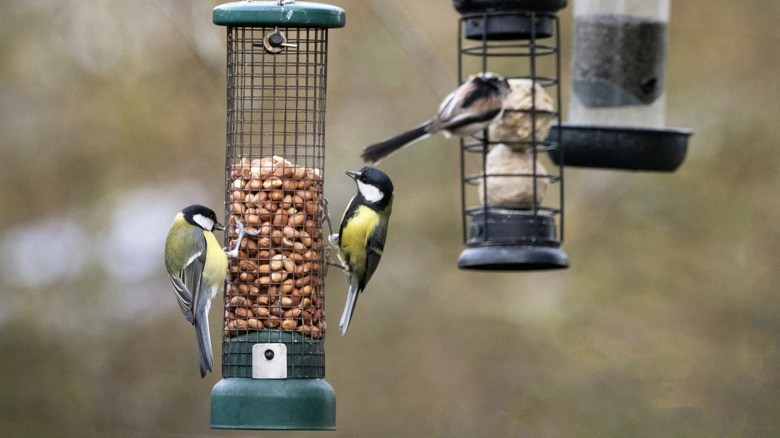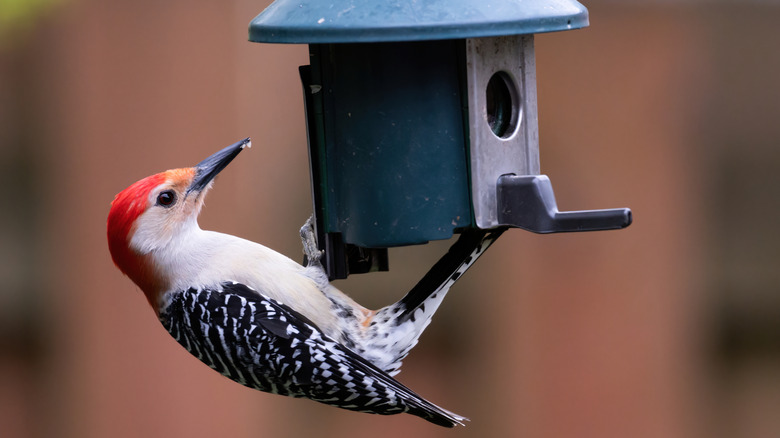Is It Worth It To Buy Expensive Bird Seed?
With prices rising everywhere, you might be wondering if it's worth buying the expensive bird seed for your feathered friends. After all, every little bit of savings adds up. Birds can be discriminating gourmets. However, it's a false economy to buy cheap birdseed if most of it ends up rotting on the ground, or worse, attracting pests to your yard. A better way to save money on birdseed is to understand the feeding habits and preferences of the birds you want to attract and be deliberate about what you offer.
Cheap bird seed is primarily filler, such as sorghum seeds, wheat, and oats, with a small amount of the good stuff birds like, such as sunflower seeds and white proso millet. Much like kids who lick the cream out of Oreos and toss aside the wafers, birds will only eat the part of the mix they prefer. The leftover filler, which can be up to 73% of the mix, will clog up your feeders and can breed harmful bacteria. As a result, it's almost always a better value to buy more expensive bird seed with less filler.
However, you don't have to spend a fortune to keep your birds happy. Black oil sunflower seeds can attract up to 40 different species of birds and are reasonably priced. You can buy them shelled or unshelled. The unshelled packages are less expensive, but only about 60% of the contents are edible, so consider that when you're comparing prices. You'll also have to clean up the mess the birds leave behind. Letting shells pile up under your feeder is one of the mistakes you can make with your bird feeder.
How to save money by making your own bird seed mix
If you want to reap the benefits of having a bird feeder in your backyard without spending a fortune on bird seed, you can make your own. You'll know exactly what your birds are getting, and you can usually save money by buying in bulk. Black oil sunflower seed attracts the most birds, as well as squirrels and other rodents. So you may want to use squirrel-proof feeders. If you're attracting a lot of unwanted house sparrows and blackbirds, switching to striped sunflower seeds may help since they're harder for them to open. If you're buying in bulk, you'll want to opt for unshelled seeds — unless you have room to store them in the freezer — because the shelled variety will spoil faster.
Safflower seeds are another option beloved by cardinals, chickadees, and some native sparrows. You can offer thistle seeds to attract a variety of small finches, including American Goldfinches and the striking Indigo Bunting. Add white millet to your seed mix for quail, doves, towhees, and juncos. You can sprinkle this directly on the ground to keep it from getting soggy in your feeders.
Crows, cardinals, chickadees, nuthatches, and titmice like peanuts. As with sunflower seeds, you can offer them shelled or unshelled. Smaller birds will prefer shelled and broken pieces. Make sure you buy plain peanuts to avoid harmful seasonings. For variety, mix other treats into your blend, such as raisins and dried cranberries. Experiment with different ratios to discover what your birds like the most, and make sure you properly clean your backyard bird feeder to keep your birds healthy.

